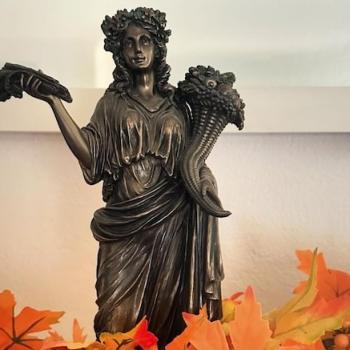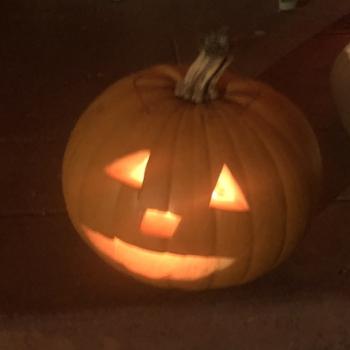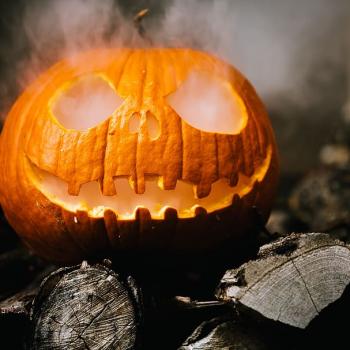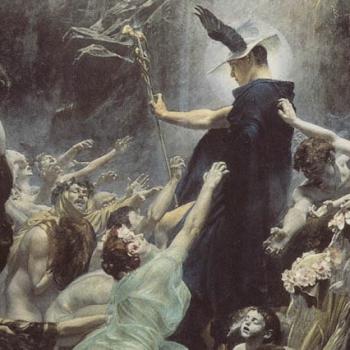My life in Witchcraft is governed by several ideas, one of them is THERE ARE NO ABSOLUTES IN WITCHCRAFT. Certainly in my initiatory practice there a bunch of things that are generally done, but when it comes to basic Witchcraft there really aren’t any hard and fast rules one must follow. For whatever reason there are certain people who like to think there are absolutes, and most often the ones spouting the absolutes stand to gain from them. If you want to do Witchcraft do Witchcraft.
(Also say it with me, “how others practice Witchcraft has no bearing on how I practice Witchcraft.”)
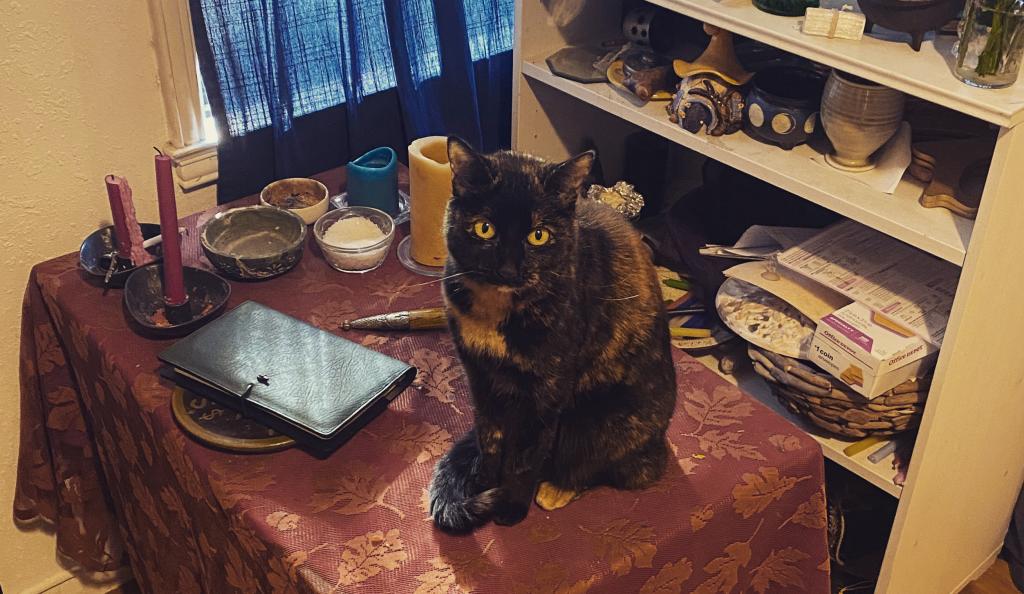
The Witch’s New Year
Social media is a popular place to engage in absolutes and the other day I saw someone loudly proclaiming That “Samhain is THE Witch’s New Year!” full stop with no room for competing arguments. In my coven’s own Samhain ritual we paid lip service to the idea that Samhain is the Witch’s New Year, and it will always be a popular ritual trope in a variety of circles. But the Wheel of the Year is a WHEEL, and wheels don’t truly have beginnings or endings. Sure, Samhain can be the Witch’s New Year if you want it to be, but so can any other day. You are free to choose what day, or even days work for you. (Yes, you can celebrate the New Year half a dozen times or more if you want!)
The idea that Samhain is the Witch’s New Year is one that comes from the erroneous idea that the Irish-Celtic Samhain was definitively the start of a new year. The simple truth is that we don’t know if Samhain was seen as the New Year for the Irish-Celts. I mean it’s possible that Samhain was the start of a new year, but it’s possible Imbolc was too, and lots of other days. Mysteries are fun!
The idea that Samhain was definatively the Celtic New Year first appears in the book Celtic Folklore: Welsh & Manx by Welsh scholar Sir John Rhys (1840-1915). Rhys’s book was published in 1901, which means the idea that Samhain is the Celtic New Year is of a rather recent vintage. And when reading the passage marking Samhain as the New Year, it doesn’t even sound like Rhys meant New Year in a truly definitive sense:
“This is the day when the tenure of land terminates, and when servantmen (sic) go to their places. In other words, it’s the beginning of a new year.” (1)
Societies often have a variety of new year’s. Think about “fiscal years” at many businesses. A fiscal year is just a start and end date for accounting purposes, I’m sure the ancients had such things too. Land tenures might have been one cycle, the actual start of the year another.
If you like Samhain as the start of the Witch’s New Year that’s great! Celebrate it and embrace it! It makes just as much sense as anything else. However, it’s not an absolute, and not every Witch has to (or will) agree with you.
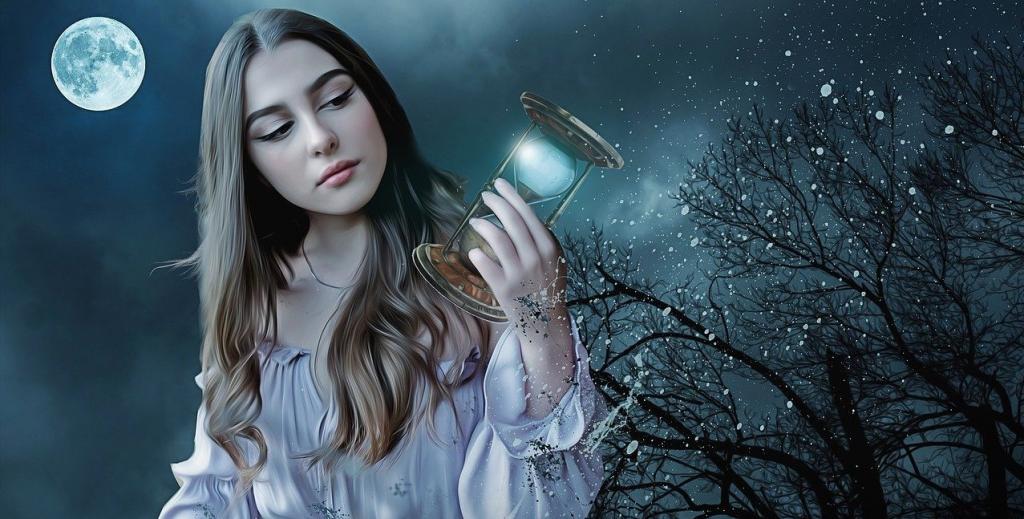
Astrological Samhain
I don’t care when you celebrate Samhain, because the sabbats are more like seasons than actual dates. The veil between the worlds doesn’t just suddenly start thinning on October 30 and then close up shop on November 1. It stays open for a long while, in my experience from October through Yule (though it tends to be a bit more open in late October and early November).
What I dislike is people telling me that Samhain is definatively November 5 or 6 (depending on what astrological calendar you are using) and that Astrological Samhain is the only real date for the holiday. In my coven we don’t really celebrate on October 31 anyways, and I’ve celebrated the sabbat in late October and early November with no issues. My preference is late October, but that’s just me, do what works for you.
While Samhain might astrologically sync up better a few days into November, there’s no evidence that the Irish-Celts were doing this (and they started the holiday). The cross-quarter sabbats line up up quite nicely in terms of space from each other, and the Irish-Celts didn’t celebrate equinoxes or solstices. I’ve also never seen anything suggesting that the Celts in Ireland circa the year 100 CE were practicing something resembling modern day astrology. This means that Astrological Samhain might not have been a thing anyways.
I had someone telling me that they liked separation between Samhain and Halloween which is why they prefer the astrological date. I totally get that, but by November 5 it starts to feel like Yuletide to me. In the United States that transition from Halloween to Yule is so quick that Halloween feels like an afterthought just a few days after it happens. (And yeah, I started listening to holiday music today, I’m a broken man and I admit this.) The switch that gets thrown in early November is another reason I like an earlier Samhain, I think the energies are stronger if more people are celebrating in some way along with me. But this is just my personal preference, and I’ll admit, I’m usually in a hurry to get to Yuletide.
Again, if Astrological Samhain is better for you, that’s GREAT! I truly mean that. We should celebrate the sabbats when it makes sense to each of us to do so! There are no right or wrong days, no absolutes, just preferences. Do what works for you and respect what works for others.
1. 1. Rhys, John, Manx Folkore & Superstition (originally published as Celtic Folklore: Welsh & Manx in 1901), edited by Stephen Miller, Chiollagh Books, 1994, page 9.
Find Jason Online
My Patreon Starts at Two Bucks!
The Horned God of the Witches
Transformative Witchcraft: The Greater Mysteries
The Witch’s Wheel of the Year: Circles for Solitaries, Circles, & Covens
Raise the Horns on Facebook Jason’s Twitter
Pictures Of Magickal Stuff
Witches, Whisky, & Wit (Podcast)
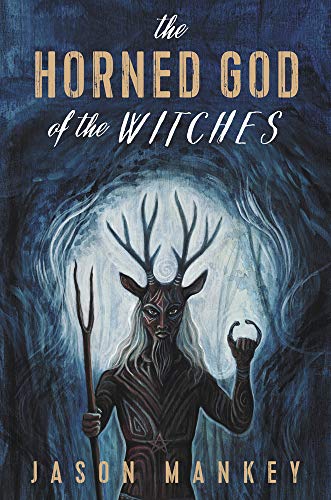
Transformative Witchcraft: The Greater Mysteries
The Witch’s Wheel of the Year: Circles for Solitaries, Circles, & Covens
Raise the Horns on Facebook Jason’s Twitter
Pictures Of Magickal Stuff
Witches, Whisky, & Wit (Podcast)

Raise the Horns on Facebook Jason’s Twitter
Pictures Of Magickal Stuff
Witches, Whisky, & Wit (Podcast)









